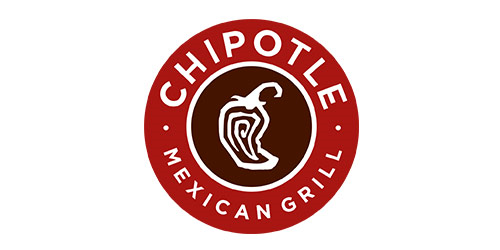Nitricity Secures $50 Million to Revolutionize Global Fertilizer Production
September 12, 2025, 9:38 am

Location: United States, Pennsylvania, Lower Merion Township
Employees: 1001-5000
Founded date: 1987
Nitricity, a pioneering climate tech firm, closed a $50 million Series B funding round. This significant capital fuels its rapid expansion across the U.S. and into the lucrative European market. The company develops Ash Tea, an innovative organic nitrogen fertilizer. It leverages recycled almond shells, air, water, and renewable energy, sidestepping the environmental damage of conventional synthetic fertilizers. Ash Tea slashes greenhouse gas emissions by up to 92%. A massive commercial-scale plant in Delhi, California, is set to open in 2026, increasing production capacity by 100-fold. This output is already fully pre-sold through 2028. Nitricity addresses critical agricultural needs with a sustainable, scalable solution. It fosters circular economies and boosts crop yields, transforming global farming practices for a greener future. Demand for its eco-friendly inputs is surging worldwide.
Nitricity, a U.S.-based climate tech innovator, has secured $50 million in Series B funding. This substantial investment propels the company's ambitious plans. It will scale organic fertilizer production across the United States and into key European markets. The funding round saw World Fund make its inaugural U.S. investment. Returning investor Khosla Ventures also participated heavily. Other notable investors included Chipotle’s Cultivate Next fund, Change Forces, Susquehanna Sustainable Investments, EIP, and Fine Structure Ventures.
This capital injection arrives at a critical juncture. Nitricity is breaking ground on its first commercial-scale organic fertilizer plant. This facility is located in Delhi, California. It aims to begin operations in 2026. The plant promises a monumental increase in production capacity. Output will expand 100-fold. Demand for this sustainable product is already immense. The entire projected output through 2028 is fully sold out. Binding agreements with local organic growers underscore this strong market appetite.
The company's flagship product, Ash Tea, offers a groundbreaking solution. It is a liquid organic nitrogen fertilizer. Its creation process uses recycled almond shells, ambient air, water, and renewable energy. This innovative approach yields a product free from pathogens. It contains no animal products. Ash Tea integrates seamlessly into existing irrigation systems. Field trials consistently demonstrate impressive results. Farmers have reported up to a 30% increase in crop yields. Every ounce of current production is already committed.
Traditional nitrogen fertilizer production carries a heavy environmental burden. The Haber-Bosch process, a century-old method, accounts for approximately 5% of global greenhouse gas emissions. It is an energy-intensive process. It also contributes significantly to environmental degradation. Nitricity’s technology presents a stark contrast. It reduces emissions by up to 92%. This dramatically mitigates the climate impact of essential agricultural inputs. Its organic nature further avoids the ecological damage linked to synthetic fertilizers.
Nitricity was founded in 2018. Stanford graduates Dr. Nicolas Pinkowski, Dr. Joshua McEnaney, and Dr. Jay Schwalbe pioneered the company. Their journey began with a simple solar-powered prototype. This device was tested on a lemon tree. Today, their pilot facility in Fremont, California, produces 80 tons of fertilizer annually. This supports about 80 acres of crops. The company’s sales pipeline now exceeds $150 million. This rapid scaling reflects urgent global demand.
The newly acquired funds will fuel several strategic initiatives. Hiring efforts will accelerate. The company plans over ten key new hires for its 38-person team. Research and development will receive significant investment. This ensures continuous innovation in sustainable agriculture. Crucially, the funds will support aggressive European expansion. Europe represents a massive market for organic fertilizers. Regulatory pressures also drive demand for sustainable farming practices. European governments seek greater resilience. They aim to foster circular agriculture economies.
Nitricity’s European strategy involves localized production. It plans to utilize local agricultural waste streams. Olive oil byproducts, for example, could power regional fertilizer production. This circular approach minimizes transport emissions. It maximizes resource efficiency. The company initially targets high-value fruit markets in Europe. Longer-term plans include expanding into staple crops like corn and wheat. This broader scope promises even greater environmental impact.
The investment reflects strong confidence in Nitricity’s technology. It signals a shift in agricultural investment priorities. Investors recognize the critical need for sustainable farming solutions. The traditional fertilizer market is complex. It is expensive. It is vulnerable to global supply chain disruptions. Nitricity offers a fundamentally different approach. Its modular system transforms readily available inputs into vital organic fertilizer. This innovation promises to transform the global agriculture system.
Nitricity champions sustainable farming practices. Its products offer a price-competitive alternative. They help farmers meet growing sustainability and organic requirements. Nitrogen loss is a major problem in conventional farming. Up to 70% of applied nitrogen can be lost. Nitricity's solution promises greater efficiency. It contributes to healthier soil ecosystems. It supports a more resilient food supply.
The company's vision extends beyond mere product sales. It aims to foster a future where agriculture is a net positive for the planet. By electrifying nitrogen fertilizer production, Nitricity significantly lowers the carbon footprint of food. It also reduces dependence on fossil fuels. This approach aligns with global climate goals. It provides tangible benefits for farmers and consumers alike. The scale of the Series B funding demonstrates widespread belief in this transformative potential. Nitricity is now poised to redefine the future of fertilizer, globally.
Nitricity, a U.S.-based climate tech innovator, has secured $50 million in Series B funding. This substantial investment propels the company's ambitious plans. It will scale organic fertilizer production across the United States and into key European markets. The funding round saw World Fund make its inaugural U.S. investment. Returning investor Khosla Ventures also participated heavily. Other notable investors included Chipotle’s Cultivate Next fund, Change Forces, Susquehanna Sustainable Investments, EIP, and Fine Structure Ventures.
This capital injection arrives at a critical juncture. Nitricity is breaking ground on its first commercial-scale organic fertilizer plant. This facility is located in Delhi, California. It aims to begin operations in 2026. The plant promises a monumental increase in production capacity. Output will expand 100-fold. Demand for this sustainable product is already immense. The entire projected output through 2028 is fully sold out. Binding agreements with local organic growers underscore this strong market appetite.
The company's flagship product, Ash Tea, offers a groundbreaking solution. It is a liquid organic nitrogen fertilizer. Its creation process uses recycled almond shells, ambient air, water, and renewable energy. This innovative approach yields a product free from pathogens. It contains no animal products. Ash Tea integrates seamlessly into existing irrigation systems. Field trials consistently demonstrate impressive results. Farmers have reported up to a 30% increase in crop yields. Every ounce of current production is already committed.
Traditional nitrogen fertilizer production carries a heavy environmental burden. The Haber-Bosch process, a century-old method, accounts for approximately 5% of global greenhouse gas emissions. It is an energy-intensive process. It also contributes significantly to environmental degradation. Nitricity’s technology presents a stark contrast. It reduces emissions by up to 92%. This dramatically mitigates the climate impact of essential agricultural inputs. Its organic nature further avoids the ecological damage linked to synthetic fertilizers.
Nitricity was founded in 2018. Stanford graduates Dr. Nicolas Pinkowski, Dr. Joshua McEnaney, and Dr. Jay Schwalbe pioneered the company. Their journey began with a simple solar-powered prototype. This device was tested on a lemon tree. Today, their pilot facility in Fremont, California, produces 80 tons of fertilizer annually. This supports about 80 acres of crops. The company’s sales pipeline now exceeds $150 million. This rapid scaling reflects urgent global demand.
The newly acquired funds will fuel several strategic initiatives. Hiring efforts will accelerate. The company plans over ten key new hires for its 38-person team. Research and development will receive significant investment. This ensures continuous innovation in sustainable agriculture. Crucially, the funds will support aggressive European expansion. Europe represents a massive market for organic fertilizers. Regulatory pressures also drive demand for sustainable farming practices. European governments seek greater resilience. They aim to foster circular agriculture economies.
Nitricity’s European strategy involves localized production. It plans to utilize local agricultural waste streams. Olive oil byproducts, for example, could power regional fertilizer production. This circular approach minimizes transport emissions. It maximizes resource efficiency. The company initially targets high-value fruit markets in Europe. Longer-term plans include expanding into staple crops like corn and wheat. This broader scope promises even greater environmental impact.
The investment reflects strong confidence in Nitricity’s technology. It signals a shift in agricultural investment priorities. Investors recognize the critical need for sustainable farming solutions. The traditional fertilizer market is complex. It is expensive. It is vulnerable to global supply chain disruptions. Nitricity offers a fundamentally different approach. Its modular system transforms readily available inputs into vital organic fertilizer. This innovation promises to transform the global agriculture system.
Nitricity champions sustainable farming practices. Its products offer a price-competitive alternative. They help farmers meet growing sustainability and organic requirements. Nitrogen loss is a major problem in conventional farming. Up to 70% of applied nitrogen can be lost. Nitricity's solution promises greater efficiency. It contributes to healthier soil ecosystems. It supports a more resilient food supply.
The company's vision extends beyond mere product sales. It aims to foster a future where agriculture is a net positive for the planet. By electrifying nitrogen fertilizer production, Nitricity significantly lowers the carbon footprint of food. It also reduces dependence on fossil fuels. This approach aligns with global climate goals. It provides tangible benefits for farmers and consumers alike. The scale of the Series B funding demonstrates widespread belief in this transformative potential. Nitricity is now poised to redefine the future of fertilizer, globally.


